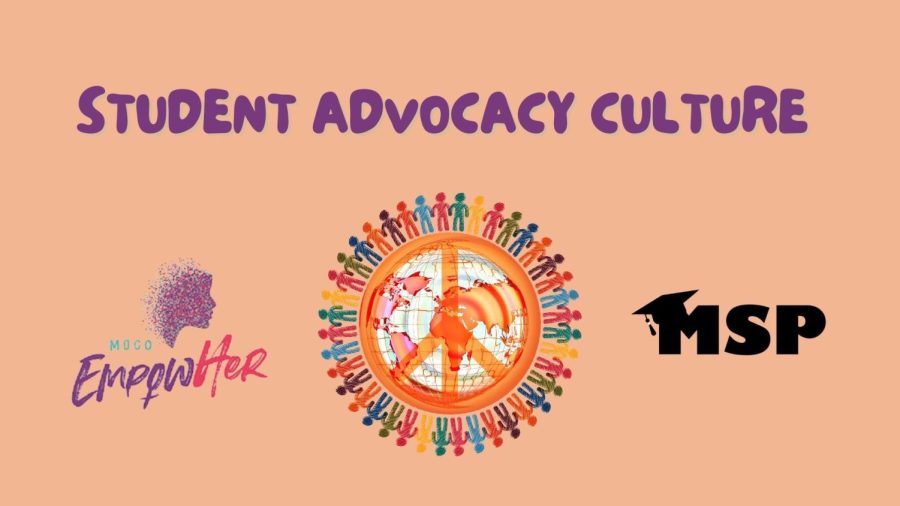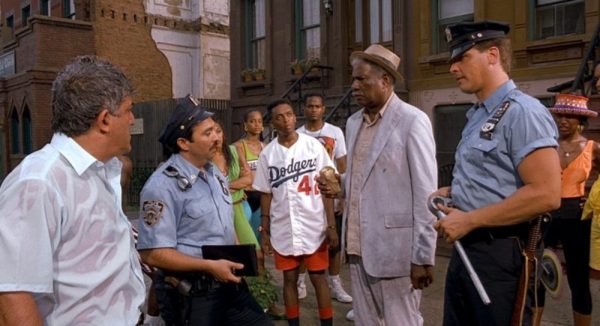Montgomery County’s student advocacy culture: the good and the bad
Richard Montgomery graduate Isabelle Scholes-Young discusses the “revolving door” of student advocacy in Montgomery County.
Despite varying opinions on Montgomery County’s student advocacy culture, it’s hard to disregard the vastness of its student organizations and the dedication and initiative of its students.
Montgomery County provides numerous opportunities for students to spread awareness, speak on school issues, and form community. Through positions such as the Student Member of the Board, organizations such as Montgomery County Regional Student Government Association and the Montgomery County Junior Council, as well as advocacy groups such as MoCo EmpowHER, the Minority Scholars Program, MoCo Pride Youth, there are many ways students can use advocate for various issues, communities, and for their fellow students.
Yet, Montgomery County’s proximity to our nation’s capital, and the general competitiveness of our school system, creates a unique culture that can create both a pressure and disconnectedness from local issues within students participating in these countywide organizations.
Isabelle Scholes-Young is a current student at American University in the Class of 2024. They graduated from Richard Montgomery High School in 2020 and held many prominent positions including being the Legislative Affairs Director of MCR-SGA and being one of the founding members of MoCo EmpowHER. During their high school career, Scholes-Young also worked as an Organizing Intern on the Ben Jealous Gubernatorial Campaign and a Legislative Intern for Council Member Jawando as well as participating in a variety of clubs at Richard Montgomery High School.
In reflecting back on their time in student advocacy, Scholes-Young points out the discrepancy between the impact of Washington DC on student advocacy culture in spite of little connections to DC as a community saying, “Montgomery County’s proximity [to D.C.] keeps us very invested in national political issues, but our proximity as a suburb keeps us very disconnected from the local political issues in DC as a city.”
While Scholes-Young commends the work of the Montgomery County Board of Education and the work happening at a state level, they observed that much of the work they did was “…more about feeling like you were making a difference than actually understanding the levels of power at the federal/national level.”
Scholes-Young also expressed concerns regarding the longevity of the student activism taking place, both within students’ drive to participate in activism and their ability to tackle issues in a school system they will soon leave behind.
Scholes-Young describes Montgomery County’s student advocacy culture as, “extremely professionalized and functioned as a pressure cooker that created tons of burnout post graduation.”
Additionally, they are wary of the activism perpetuated by students who can “only stay connected to their locality for a maximum of four years.” Scholes-Young explains how this “revolving door” allows leaders to wait out generations of activists instead of implementing the change they work towards.
Luckily, Scholes-Young feels that they have been able to make a difference at a local level upon moving to DC for college by addressing homelessness within the city doing mutual aid. For more information on the work they are doing, check out @everybodyeatsdc on Instagram.
Your donation will support the student journalists of Watkins Mill High School. Your contribution will allow us to purchase equipment and cover our annual website hosting costs.

Andrea “AJ” Gordon is a senior at Watkins Mill High School and Opinion Managing Editor for The Current. She is an IB Diploma student and is a part...










